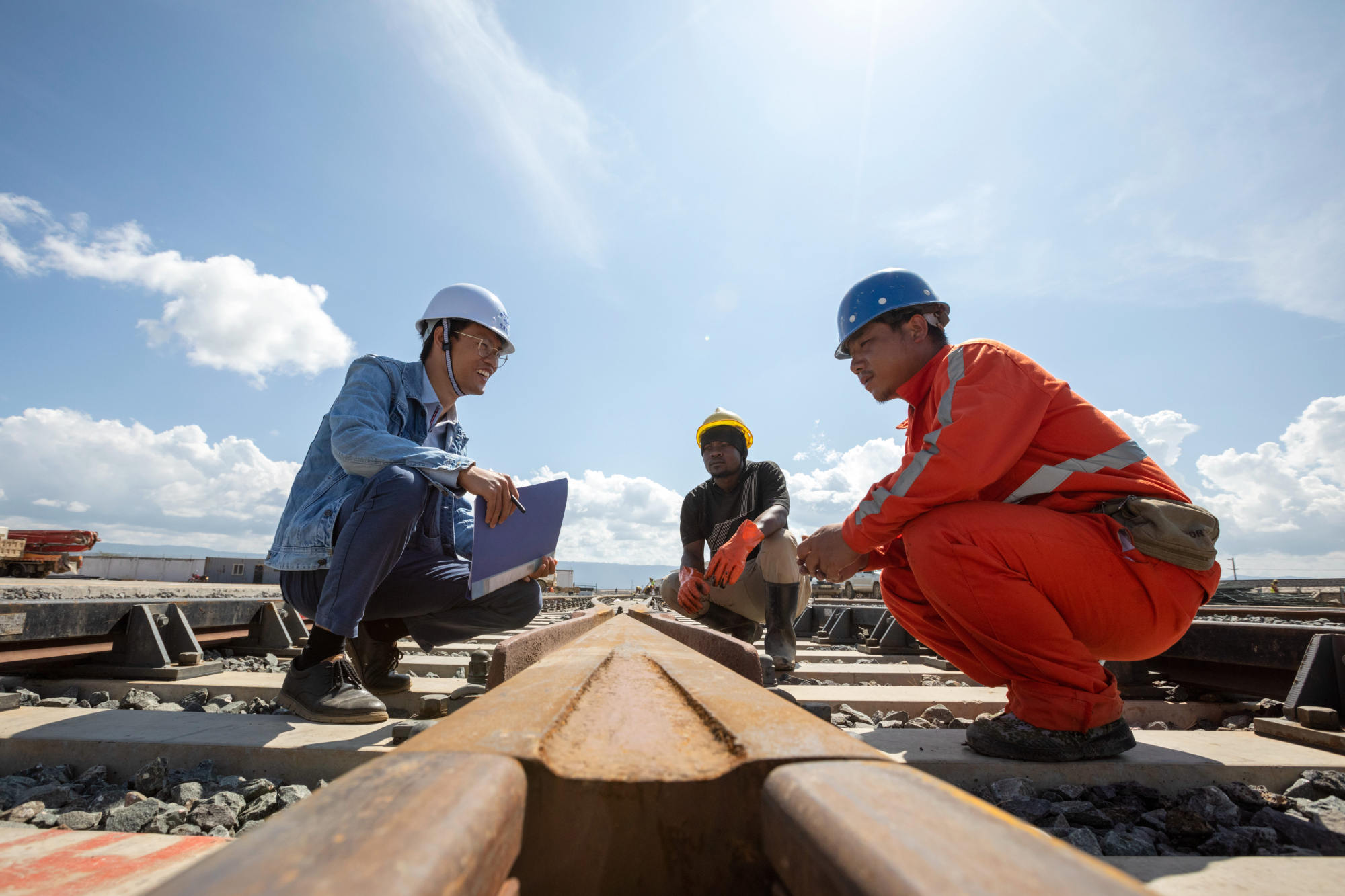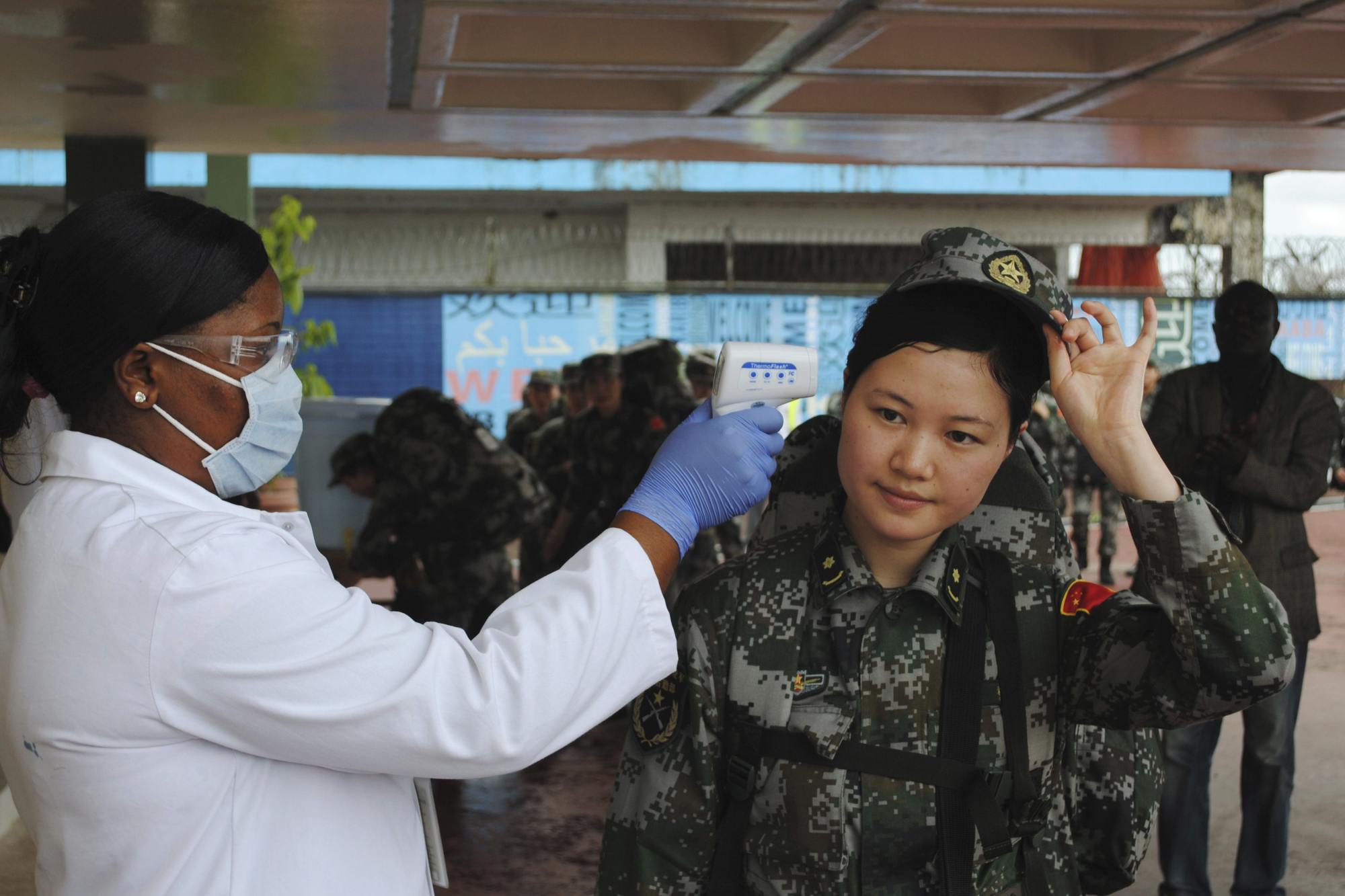
Chinese provinces race along Xi Jinping’s ‘green lanes’ to Africa trade
- Hunan leads emerging local-level drivers of China- Africa cooperation, alongside powerhouse provinces of Zhejiang and Guangdong
- Greater decentralisation and autonomy continue to allow and encourage local authorities to ‘go out’ to Africa, analysts note
Regulations approved by provincial lawmakers included the building of a free-trade zone and a distribution, trading and processing centre for African non-resource products, as well as the setting up of a “green customs clearance” system for African imports.
They also passed bills to build a railway-sea transport channel between landlocked Hunan and southern coastal province Guangdong, expand the passenger and cargo route network from provincial capital Changsha to major African aviation hubs, and develop a river-sea transport relay route to major African ports.
After Kenyan avocado, Zambian soybean meal goes to China
The province is among the emerging drivers of China- Africa cooperation, with trade volume reaching US$6.34 billion in 2021, an increase of nearly 40 per cent from the previous year.
A number of other Chinese provinces and cities have also backed more of their companies to invest in Africa in line with central government policies, thus boosting two-way trade.
These companies are helping to develop Africa’s supply chains amid disruptions to global trade caused by the Covid-19 pandemic and the Russian invasion of Ukraine.
Last year, authorities in Hunan’s industrial hub of Zhuzhou set up the China-Africa Rail-Sea Express Company, marking a new step in the combined transport channel to Africa via Nansha port in Guangdong.

The channel is mainly used to transport grain, grain seeds, auto parts, chemicals and construction machinery, with the first phase covering 11 seaports in Africa and 20 roads and railways leading into the interior of the continent.
The China-Africa Business Council, in a new report co-authored by Beijing-based consultancy Development Reimagined, said actions taken at the local level by provinces such as Zhejiang, Guangdong, Shandong and Jiangsu have boosted African exports to China and increased annual flows of Chinese foreign direct investment, despite the economic impact of the coronavirus pandemic.
Observers say greater decentralisation and autonomy has allowed and encouraged Chinese provinces or local authorities to “go out” to do business with and invest in Africa.

John Calabrese, head of the Middle East-Asia Project at American University, said Beijing directs interprovincial and foreign trade overall, and asserts its leadership and authority over specific aspects of national strategic importance. However, since the post-Mao Zedong economic reform era of the late 1970s, central authorities have promoted a decentralised governance model.
“To be sure, the degree of latitude enjoyed by local and provincial authorities has waxed and waned. But it is important to view the current trade dynamics between China and the African continent in this broader context,” Calabrese explained.
He said the rationale behind “unleashing” local and provincial leaders to “do their own thing” was to encourage healthy competition. This was the underlying motivation for the very first special economic zones (SEZs) – inducing competition that would attract foreign investment.
Should Nato be worried about China and Russia’s influence in Africa?
Coastal provinces Guangdong, Jiangsu, Zhejiang, and Shandong are positioned as “nodal points” on China’s “maritime commercial highway”, with the first three accounting for about half of China’s global trade volume, Calabrese noted. “They are, in this respect, leading engines of the Chinese economy,” he said.
Hunan is a comparative outlier as an “inland” region. “But the Chinese authorities have been trying to ‘connect’ these provinces to the rest of the world as a means of invigorating their economies and thus tackling the challenge of uneven development,” Calabrese added.

The CABC’s China-Africa supply chain report last week highlighted eastern Zhejiang province’s “bottom-up” approach to promoting African ties, with the strong involvement of private companies, service centres, research institutes and local chambers of commerce.
In early April 2019, the provincial commerce department issued an action plan to boost trade with Africa. Two years later, total bilateral trade had reached US$43.4 billion, an increase of more than 17 per cent over 2020.
As one of China’s key manufacturing and textile hubs, Zhejiang exports a diverse range of goods to Africa, from light industrial products to a combination of mechanical and electrical products, auto parts, and other industrial items.
Industrial powerhouse Guangdong is another major Chinese province in the mix where Africa trade volume for 2021 hit US$43.71 billion, an increase of 9.5 per cent from the previous year, with mechanical and electrical products and agricultural goods the main exports.

It has invested in nearly 300 overseas enterprises in Africa, involving an estimated US$2.5 billion, while provincial capital Guangzhou hosts the most important sea entry and exit point for African trade, operating 22 container routes to major ports in the continent.
Development Reimagined CEO Hannah Ryder said their report makes clear that China’s development is intertwined with the success of Africa’s supply chains.
“If Africa’s supply chains remain as poor as the report explains … Chinese firms will be unable to make the most of Africa’s consumer markets, and global costs of consumption will rise,” she said.

David Shinn, professor at George Washington University’s Elliott School of International Affairs, said China has long encouraged provincial-level engagement with foreign countries on certain issues.
Provincial foreign affairs offices operate both as branches of the Chinese foreign ministry and in the local interest, he noted. “In the case of Africa, Chinese provinces have focused on trade, investment, and economic development,” Shinn said.
Shinn noted how, since the first Chinese medical team was sent to Algeria in 1963, provinces have been “twinned” with one or more host African countries, to which they send such health aid teams on rotation.
“It is in the interest of provinces to expand their trade and investment [in Africa]. American state governments perform essentially the same function,” Shinn said.

Other leading Chinese provinces engaged in cooperation with Africa at the local level include Fujian, Yunnan and Jiangxi, as well as the mega cities of Shanghai and Tianjin.
Linda Calabrese, research fellow and development economist at the Overseas Development Institute in London, said local governments in China are tasked with helping businesses to grow, which includes exploring trade and investment opportunities abroad.
“At the provincial and even city level, there are many institutions, including government agencies but also chambers of commerce [both private and state-affiliated] that help businesses expand abroad,” she pointed out.
China’s trade with Africa gets boost from rising commodity prices
Zhejiang, for instance, has several such chambers, Calabrese said, some of which have a partnership with other countries or have set up overseas chapters, including in Africa.
Beijing provides directives or indications on policy direction, which provinces and other local governments then interpret and implement, she explained.
“So, when the central government indicates that businesses need to ‘go out’, provinces do their best to achieve this, including supporting businesses by inking [overseas] deals, supporting trade delegations, and anything else that can support their goals.”

